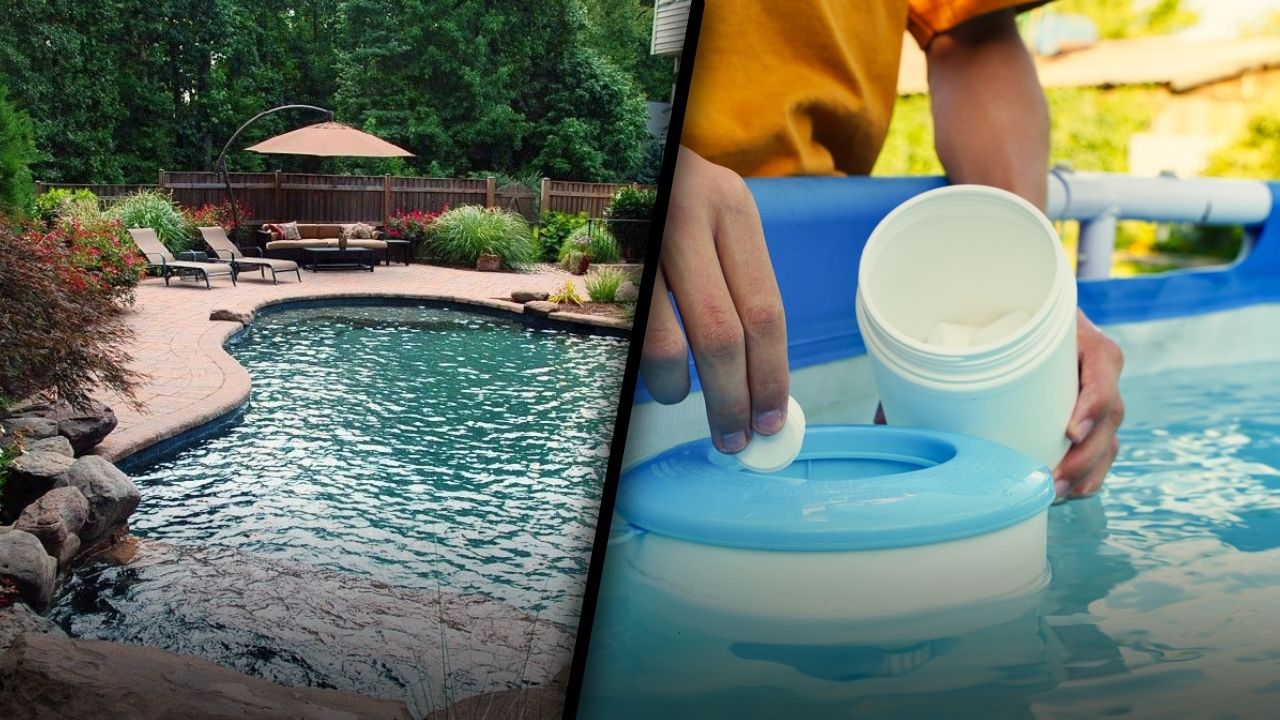Compared to traditional chlorine pools, saltwater pools are more gentle. Choosing between two options requires knowledge of the details.
Swimming preferences vary from person to person. It’s easy to find a pool for your backyard thanks to the variety of options available. For leisurely wading or taking cannon balls in the deep end, there is a zero-depth entry option. If you want to swim laps or have a social gathering, you can use a rectangle. The method of water sanitization you use depends on your needs, in addition to its size, shape, activities, and accessories. A saltwater pool differs from a chlorine pool in the following ways.
The Difference Between Saltwater and Chlorine Pools
Chlorine tablets or liquids must be used if the water in a traditional chlorine pool needs to be balanced. Calcium hardness, pH, and alkalinity must also be adjusted. You may need to shock a saltwater pool once in a while if you have a saltwater pool, but they require the same chemicals except chlorine.
In saltwater pools, chlorine is generated through electrolysis instead of buying it from the store. A chlorine generator is filled with pool grade salt. After the salty water is run through the generator, it is converted to chlorine by electrically charged plates. Even though chlorine is used to sanitize the pool water, the process differs from that used in traditional chlorinated pools.
Saltwater pools utilize a different kind of chlorine than traditional pools, even though both are sanitized with the same substance. When saltwater chlorine is generated, it produces fewer chloramines, which are the real culprits for traditional chlorine pool smells and feelings.
Chloramines are a type of combined chlorine that forms in water and emits gas into the environment, according to the Centers for Disease Control and Prevention (CDC). The well-known chlorine smell is caused by these compounds as well as red eyes and breathing difficulties.
Advantages of Saltwater Pools vs. Chlorine Pools
Each type of pool water has its pros and cons, so let’s look at the pros first.
Saltwater pools
-
Keeping the business running on a daily basis is less expensive. Salt is estimated to cost $20–$30 at Home Depot for an entire summer’s supply. During the summer, chlorine costs $150-$180 per month.
-
Skin, eyes, swimsuits, hair, and other body parts benefit from the lighter chlorine load.
-
Traditional chlorine pools have a strong smell that many people dislike. Chemicals aren’t as strong in saltwater pools.
Chlorine pools
-
It may be more cost-effective to leave your chlorine pool as it is. There can be a difference of $1000–$5000 in cost depending on the size of the pool when it comes to converting to saltwater.
-
The smell is enjoyed by some people.
-
A chilly summer day doesn’t stop them from working.
Disadvantages of Each System
The pros and cons of both types of pools are also similar.
Saltwater pools
-
Adding salt to a pool can cause it to erode more quickly.
-
Regular maintenance and cleaning are required for salt chlorine generators. You should replace your generator before you sell your home, as it is another mechanical component that may break down.
-
At temperatures below 60 degrees, it won’t produce chlorine.
Chlorine pools
-
As a result, you may experience dry skin, red eyes, bleached swimwear, and irritated noses, throats, or lungs.
-
Chlorine products cost more than pool salt, so you must keep them on hand.
-
If you have an indoor pool, chlorineamines may cause a strong “chlorine” smell.
There is no technical advantage to saltwater generation or to traditional chlorine generation, as both methods of sanitizing are effective. When it comes to sensitive skin, allergies, and asthma, saltwater and natural pools are often the first choices.





